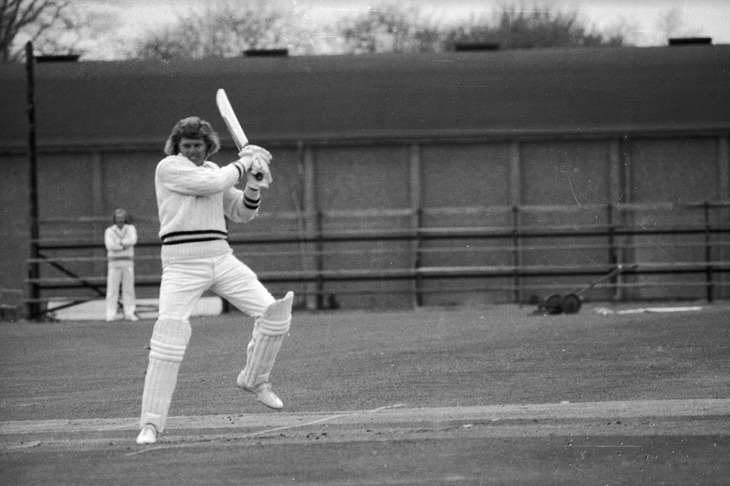The first time I went to Lord’s was in 1970, just before the unofficial Test series which replaced the cancelled South African one. I was in the Long Room, discussing Barry Richards, one of the most elegant batsmen of all time. He did not seem to hit the ball. It was as if he had caressed it, after which it would rocket to the boundary. Has there ever been an opener whose stroke-play gave such aesthetic pleasure?
An incredibly old buffer joined in our conversation: ‘I always knew young Richards would be good. Came over here as a 16-year-old schoolboy and hit a six off me.’ Who was this pompous so-and-so? Someone of a similar vintage promptly clapped him on the shoulder: ‘Morning, Alec.’ Er, yes: when Barry Richards was 16, Alec Bedser would have been 43. He would still not have been giving away sixes.
Cricket is the greatest sporting spectacle. Before the current Test series began, two conclusions were being drawn. First, that the Indians would win easily. Second, that Test cricket was under threat from various ersatz versions, mostly sponsored by bookmakers from the subcontinent. Now it is not only political commentators who seem incapable of predicting the past, let alone the future.
After a riveting first Test, the Indians were unlucky at Lord’s. It always seemed likely that the side which won the toss would win the match. The conditions encouraged a magnificent display of English swing-bowling. In response, the Indians’ technique collapsed and possibly also their morale. For a couple of sessions, we seemed to be back several decades, in the era when India would be captained by some stately Maharajah, and their batsmen would be retreating towards the square-leg umpire before the English quick had started his run-up. The Indians now face a challenge of character. If they can surmount it, this series will still have its opportunities.
Cricket: the gentlest game, the most beautiful game, the hardest game. Once, on a village green, pint in hand, my eye fell on a strange-looking individual in a dog collar. Both burly and shrunken, he looked like a Wodehousian curate with a ravaged soul. I tried that paradox on my neighbour, who told me that I spoke truer than I knew. The chap was indeed a curate, and had been a mighty if unsophisticated smiter of a cricket ball. Once, properly middled, it had soared over the boundary. And landed on a baby’s head. Death was instantaneous, for the baby. In the clergyman’s case, life had become a living death. Everyone told him that it was not his fault. The infant’s parents had forgiven him. He could not forgive himself. God. Around me was sunshine and laughter and cries of ‘same again’. Except on that poor fellow’s face; it bore the stigmata of Hellish suffering.
Cricket is also about literature. Neville Cardus deserves a place in any anthology of English prose. ‘It is as if God had picked up a piece of good old Yorkshire clay, and moulded it into human form, and breathed life into it, saying: “thy name is Emmott Robinson and tha shall open t’bowling from Pavilion end”.’
Cricket goes with wine. Arlott, Gower, Botham are only three examples among many. Jacques Kallis — is he the greatest South African cricketer since Barry Richards? — is now running a vineyard. On Friday, at Lord’s but in the Middlesex hospitality area, we were lucky to meet Laura Angus, a delightful Australian girl. As was often said about the Waugh brothers, what a pity that her ancestors were transported. We drank an excellent sauvignon blanc from Marl-borough (New Zealand), a South African pinotage and a great deal of beer. Laughter, stories, glasses constantly recharged and an England win almost inevitable, weather permitting. What a splendid day.






Comments